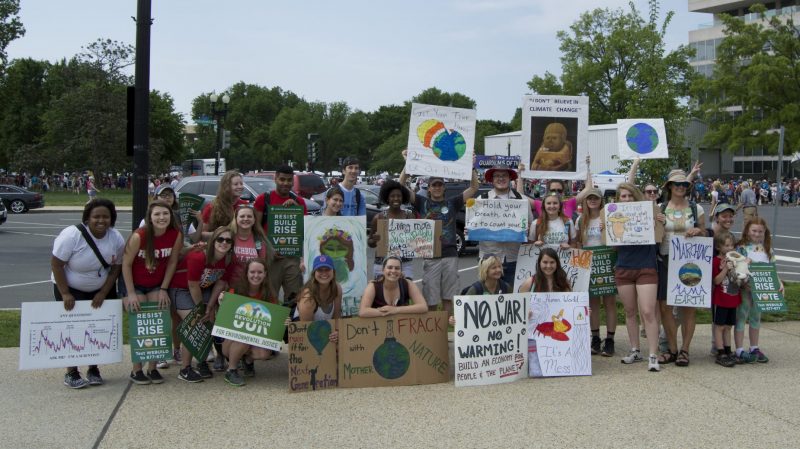
University of Lynchburg community members recently joined more than 200,000 demonstrators advocating for sound, science-backed government policy on climate change.
The Peoples Climate Movement organized a march in Washington, D.C., on April 29, as well as more than 300 related events across the country. Twenty Lynchburg students and two staff members attended the D.C. event under the direction of Dr. Laura Henry-Stone, an environmental studies professor.
Amanda Perry ’17 went to the march to represent the Bonner Leader Program. Even while wrapping up the last few busy weeks before graduation, she wanted to demonstrate her duty to protect the Earth. She enjoyed joining up with other campus organizations who came together to support a common goal. “It was one of the best days of my life. It was so inspiring to see thousands of people who made signs, cheered, and marched for the planet,” she said. She was intrigued by the great outpouring of support for environmental protections so soon after the U.S. elected President Donald Trump, who has opposed legislation and treaties designed to mitigate climate change.
Brittany O’Connell ’17 described the united body as a strong and powerful force. She enjoyed seeing the “colorful, catchy, and meaningful” signs that protesters had made, including some made by the Lynchburg group.
Dr. Henry-Stone said participating the march gave students the opportunity to practice citizenship skills that will help them advocate for their communities and the environment — something they will need to do much of.
“Students graduating from college this year and in the next few years will have no greater challenge ahead of them than that of climate change and all of the associated environmental, social, and political impacts,” she said. “A liberal arts college should be preparing students to be responsible stewards and citizens. … Attending a march like the Peoples Climate March gives them a first-hand opportunity to learn about political organizing and collective action.”
The students’ participation in the event was sponsored by the University of Lynchburg sustainability budget and the Bonner Leader program.

